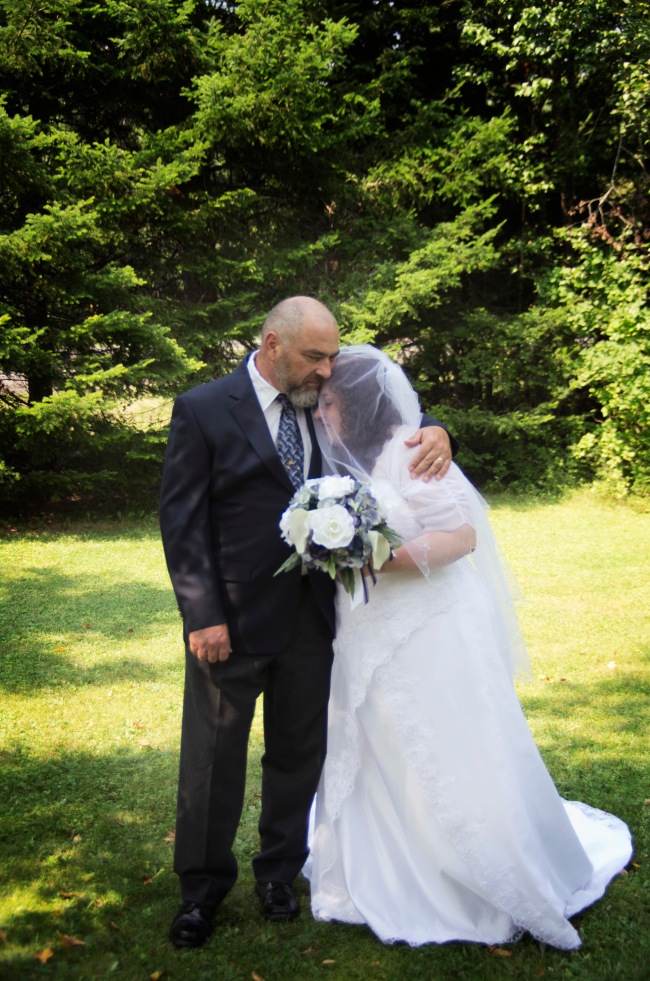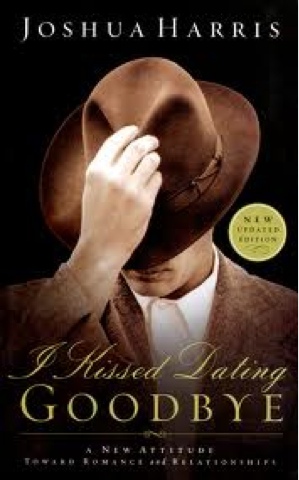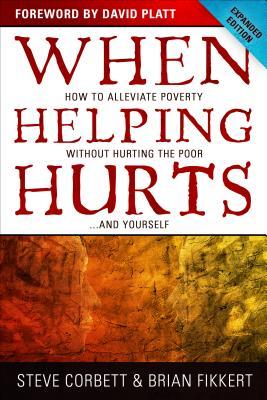My dad was a feminist before I was. I don’t think he’d have used the term then, and I don’t know that he’d use it now. It has different connotations for many people of his generation than it does for me. But label or no label, he has championed me, my mother, and my sisters for as long as I can remember. If I believe that the Gospel is truly Good News for everyone (even–or perhaps especially–for women) it is in large part because of my dad.
My parents never really used words like “lead” or “submit” to describe their relationship dynamic, at least not to us. When I began to hear those words in Sunday School or in church (or, more than likely, in my own Bible reading), I simply assumed that they looked in practice like what my parents had: a relationship of equals. I don’t remember ever seeing my dad pull rank on my mother. He valued her wisdom, and to get his way simply because he was the man, rather than because they were both convinced that they were making the right decision, would have been unthinkable to him. This was nowhere truer than in my parents’ spiritual leadership of our family. To this day, I can’t think of a better example of two people using their own gifts to accomplish a task well together. In many ways, my mom was the one who performed the tasks generally associated with “spiritual leadership” of the family. She initiated family devotions, prayer and Scripture memorization. My mom’s personality, like her faith, was more pragmatic and devotional, and ideally suited to those tasks. But none of this means that my dad “abdicated his responsibility” as the spiritual head of our household (whatever that even means). Instead, he provided us with spiritual leadership in other ways, ways better suited to his own personality. My dad has always had a strong theological bent. He loves to know and to learn, to ask questions and to read widely. He provided us with a model of how to pursue truth humbly, and to appreciate the wealth of truths about God found in the myriad of existing Christian traditions. When I had questions, or doubts, I brought them to my dad, and no one was better at encouraging me to wrestle with them while reminding me to focus on Jesus first, and not let lesser questions overshadow Him. The way my parents worked together, each brought their gifts to the table, and respected each other has always been my model for marriage. I respect my father more, not less, for the humble way in which he shares the leadership of the family with my mother.
My father also believed, before I did, in the fullness of God’s plan for women in the Church and in the world. For as long as I can remember, he has chosen to read the Scriptures in an open and expansive way, one that builds up women and celebrates the many ways in which they contribute to building God’s kingdom. When my gifts turned out to be more intellectual than domestic (although I’ve since learned to bake a mean cookie), my father encouraged me to pursue them fully. “You know, Christina, you could get your PhD.” I laughed at him then, I guess he gets to laugh at me now. “You could preach, you know? You’d be good at that.” I’m not sure I realized, when I was a young teenager, how rare it is for an evangelical girl to hear those words from her father. My dad never taught me that there was anything I had to do or couldn’t do because I was female (nor, for that matter, did my mother). He allowed me the freedom to eschew the ideal of “the perfect woman of God” and to simply seek God as Christina. It’s in large part because the freedom he gave me and the example he set for me that I still do.
***
This is a contribution to Sarah Bessey’s “I am a Jesus Feminist Because…” synchroblog in honour of the release of her book (which just came in the mail. Yay!) Be sure to head on over to her blog to check out some of the other contributions.




.jpg/200px-Ella_enchanted_(book_cover).jpg)


 I Kissed Dating Goodbye and Boy Meets Girl by Joshua Harris (also Authentic Beauty and When God Writes Your Love Story by the Eric and Leslie Ludy)
I Kissed Dating Goodbye and Boy Meets Girl by Joshua Harris (also Authentic Beauty and When God Writes Your Love Story by the Eric and Leslie Ludy)




